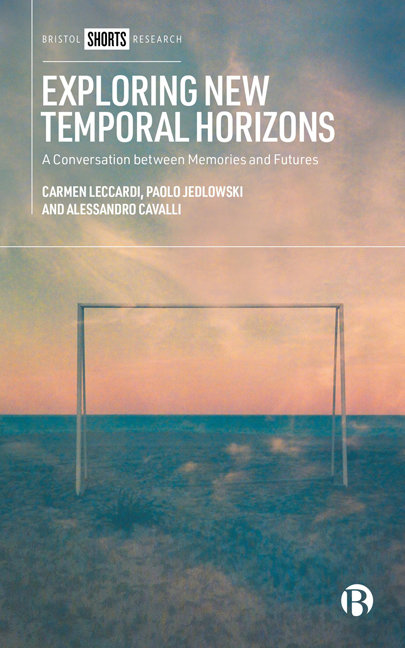One - Memories: What Memories Does the Future Need?
Published online by Cambridge University Press: 28 March 2024
Summary
Memento
As teachers, we often discuss the topic of memory with our students, and sometimes they protest: ‘Why do we have to talk about the past? It’s the future we care about!’ But are they really two separate things? During a lecture, we were once rescued by a story told by a friend of ours. It is a story taken from daily life.
Our friend lives in Rome, a crowded city. Every night, when he drives home, he has to circle his neighbourhood many times to find a parking spot. He is rather forgetful, and he knows that. Finding his car the next morning is often a problem. The solution he has found is that every night, when he gets home, he tells his wife where he parked: “Saying it out loud is really helpful, you know”, he said, “Then we both know where the car is.”
In this story, especially in our friend’s comment, there is something that is relevant to our discussion of memory, which is that memory has a power to ‘exteriorize’ itself. Saying out loud to another person where we parked the car is a form of exteriorization of personal memory, that is, of the human capacity to store a memory outside of ourselves. We might as well say that memory has a power to ‘objectivize’ itself: if our friend was more familiar with his smartphone, he could save the spot in a note or take a picture of the street, or he might, more simply, write it on a piece of paper.
This is the method used by the protagonist of Christopher Nolan’s (2000) film Memento to exteriorize his memory. This character suffers from anterograde amnesia, a disorder that makes him able to retain whatever happens to him only for a few minutes before it fades away. His life is a series of unrelated episodes with no memory to tie them together – which clearly makes it a very hard life. We might take this disorder as a metaphor of modern life, that is, of the disconnected character of our experiences in the frantic rhythm of the daily grind.
- Type
- Chapter
- Information
- Exploring New Temporal HorizonsA Conversation between Memories and Futures, pp. 8 - 44Publisher: Bristol University PressPrint publication year: 2023

